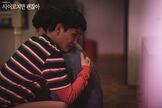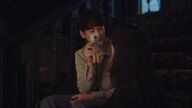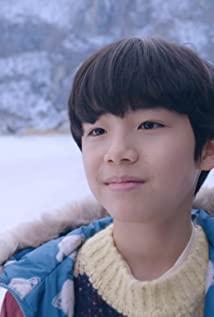It is common to see couples complaining like this:
I have a cheerful personality and love to deal with people. He was very bored, and it was more difficult to go out than to go to the sky.
If I am unhappy, I will say it directly, but he likes to hold back.
Next, some partners start accusing, arguing, disagreeing with each other, and eventually break up.
When they broke up, the two disappointedly wrote in the "reason" column: personality incompatibility. But I forgot that when we were in love, I also proudly said: Our personalities complement each other, and we are really a natural couple.
We can't help but wonder: Is it true that the characters complement each other, "Success is also Xiao He, and defeat is Xiao He"?
A master of psychology said: Personality differences are not the reason for the separation of partners, it is precisely used to love each other.
So why do we fall in love with people who are the opposite of ourselves, and at the same time deeply despise them?
This drama "It's Psycho, But It's Okay" can bring a lot of inspiration.
Complementary character is the prelude to love
"Although it's mentally ill, it's okay" tells the story of such two people meeting:
The fairy tale writer Gao Wenying, although successful in her career, treats people indifferently and speaks harshly. She never considers the feelings of others and can make a little book fan who adores her cry in a minute. She is hostile to people, reckless and impulsive, and even draws a "knife" to face each other if she disagrees.
Meanwhile, another person is almost her opposite.
Wen Kangtai, who works as a nurse in a mental hospital, is a standard "warm man". For many years, he took care of his autistic brother alone. Even though his brother was fired from the factory for the Nth time, he still smiled softly and took him to eat delicious food. In the hospital, he is notoriously good-natured. Even if the patient vomits all over him or slaps him inexplicably, he is silently tolerant and has no complaints. He was full of kindness and compassion for people and lived a life of self-giving.
In this way, the characters are completely opposite, and the two people who seem to be unable to fight with each other are deeply attracted to each other when they meet for the first time.
On a spring afternoon with cherry blossoms flying, Gao Wenying was sitting on a bench smoking a cigarette alone. Wen Kangtai came over and told her that this is a non-smoking area, please put out the smoke. Gao Wenying wanted to speak ill of each other, but was moved by the other party's gentle and firm attitude (and of course his handsome appearance): It turns out that if you refuse others, you can also speak well like this.
She complied with the rules for the first time, but did not forget to express her displeasure: she threw the cigarette directly into the other party's coffee with graceful attitude and left. At this moment, Wen Kangtai was angry and shocked: This woman is really rude. But she is very different. She expresses so neatly and neatly, without concealing her true emotions.
She's touched by his tenderness, he's fired by her authenticity, and that's the great attraction that comes with complementary character in the first place.
When the part of us that is missing, or that we long to release, suddenly shines in another person, we will unconsciously want to get close to him. With such a Ta, there will be a sense of completeness, as if you also have this part.
The complementary half is the hidden self
Psychology believes that in addition to the "dominant personality" seen by the outside world, a person's personality also has a "recessive personality" that hides in the dark.
Like the heads and tails of a coin, when the heads are up, the tails are invisible, but it remains.
It can be said that when the "recessive personality" is suppressed deeper, the dominant part will be stronger, which is an excessive defense of people's subconscious.
For example, Wen Kangtai can be "good" to the point that he has no temper at all, which is precisely to cover up the anger that has turned upside down in his heart. Gao Wenying can be so cruel that in front of the boy she likes, she deliberately and cruelly tore the butterfly with her hands. This is to fiercely resist her desire to get close to the other party.
Under heavy self-repression, Wen Kangtai's goodness and Gao Wenying's evil both appear extreme and unnatural. This also creates their loneliness and pain.
Therefore, when they met each other, they awakened the hidden, even locked self. It's so ready to come out, it's been waiting to be seen, to be released, to be embraced.
The family of origin determines what you reject
Why do we hide the real part of ourselves when we yearn for it?
because of the need for growth.
It is not difficult to understand the original family of the two protagonists.
Gao Wenying's mother is a writer who lives completely narcissistically in her own world. Instead of seeing her as a separate person, she sees her daughter as an extension of herself, another work of her own.
Her almost morbid possession and control of her daughter was so mad that she killed the nanny who came to help take care of the child. She chained her daughter tightly to her side and did not allow her to have friends. In this regard, busy fathers always turn a blind eye. Her only memory was that her father had read a fairy tale for her, an experience so warm and yet so thin.
Growing up in such a family, Wenying's "dominant personality" is a "giant baby" that can only be demanded. She must be like her mother: cold, irritable, and self-centered. And tenderness, consideration, and compassion are not welcome in this family, and such a self will not be loved.
Wen Kangtai's "dominant personality" is "caregiver". He was born with the mission of taking care of his brother with autism. Since he was a child, he felt that his mother loved his brother more, and he can only make his mother happy if he is well-behaved and sensible and takes good care of his brother. His life posture is curled up, unable to stretch the other side of himself: willful, demanding, angry... After the death of his mother, he understands more that only by forbearance can he and his brother live in secret.
When a part of a child's characteristics is not loved and accepted in his growth, in order to survive, the child will choose to suppress and refuse to show this part of himself.
Everyone's family and growth environment can't be perfect, and we do so for necessary self-preservation. After growing up, the restrictions of the original family are no longer there, but the invisible rope still binds our "invisible personality". We long to release it, but we are also afraid to present it.
Therefore, the subconscious mind guides us to find a person who can struttingly present the rejected part, through love and acquaintance with him, to understand, and then to learn how to shake hands with the unknown self.
Healing and Change: Demonstration of Love
With complementary lovers, the more attractive it is at first, the more intense the conflict that ensues.
Because this is the collision and competition between a person's "dominant personality" and "recessive personality".
The previous taboo was related to survival. Even if the mind knew that there was no danger, the body would instinctively resist change, and the anxiety and discomfort would come face to face.
for example:
Wen Kangtai decided to take a leave of absence to relax and play. When Wen Ying carefully made a long-distance travel plan, he found that he was only thinking of a day trip. Angrily, she drove to the cliff, frightening Wen Kangtai, who was not used to facing her emotions.
Wen Kangtai couldn't selfishly leave his brother, chose self-sacrifice again, and broke up with Wen Ying, which made Wen Ying who never thought about others incomprehensible and became furious.
How to face the conflict is very important. This is a watershed between the two, and it is also a tug of war between growth and stagnation.
Some people choose, blame, correct, reform each other, and then give up in disappointment. Giving up is not just a resilient relationship, but a good opportunity for self-integration.
Wen Kangtai and Gao Wenying finally chose to accept each other after falling in love and killing each other. They see the real world, they know who they are, and when the power of love transcends the fear of change, healing and change happen.
As a result, their respective "dominant personalities" and "recessive personalities" began to merge, and the balance and fulfillment brought about by self-integration would release a person's greater power.
Gao Wenying's once icy eyes became gentle as water. She was no longer entangled by her mother's words: "You will become like me" day and night, but became a warm person.
Wen Kangtai no longer smiled sadly, finally came out of the symbiosis with his brother, unloaded the burden, and lived his own life relaxed and happy.
The power of integration allows them to get rid of the entanglement of their respective families of origin and move towards maturity and independence.
This is the ultimate goal of a man's life: to be me.
Can I still develop my "whole self" without a complementary partner?
The answer is yes. Our relationships with others are our best mirrors for knowing ourselves.
Whether it’s a partner, child, friend or co-worker, you can be aware of your emotions when interacting, and when judgment and anger arise, ask yourself, what am I rejecting? Do I have this part of myself?
When one person feels that he is always right, the other half is often wrong. At this time, the other party is reminding: you are rejecting the self who can also make mistakes.
It is good to be aware first, and only through repeated and in-depth awareness can we finally reach the stage of acceptance.
Conflict is painful, but it is also the gift of life. When you can take responsibility for your emotions and turn your eyes more inward, you will eventually usher in a better version of yourself.
View more about It's Okay to Not Be Okay reviews











